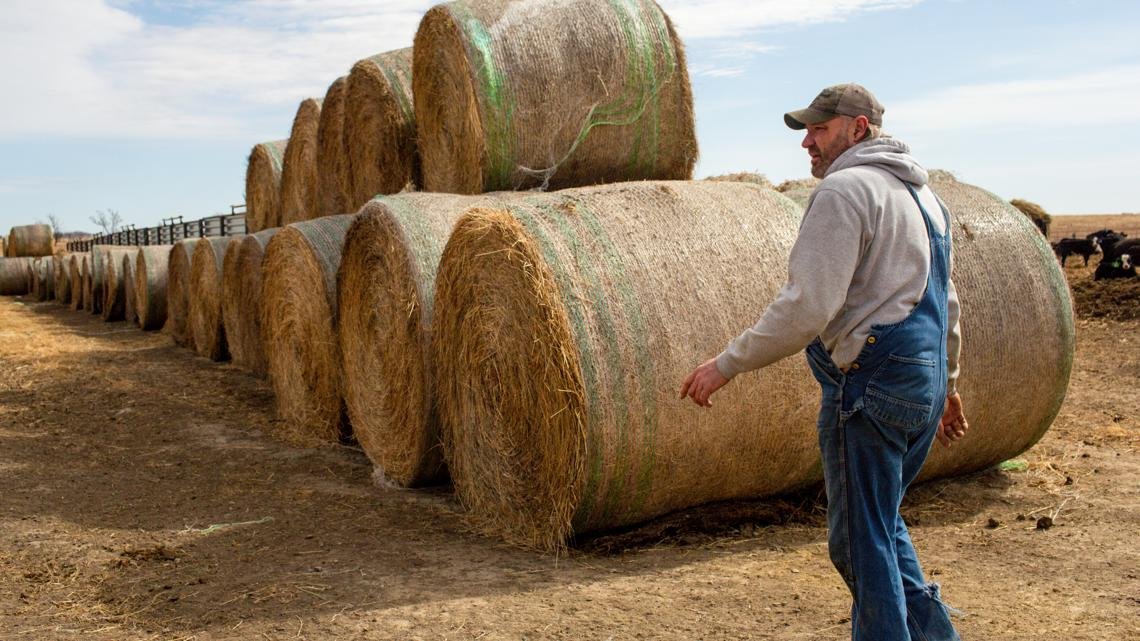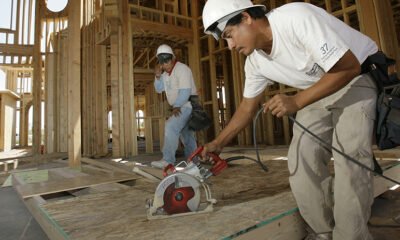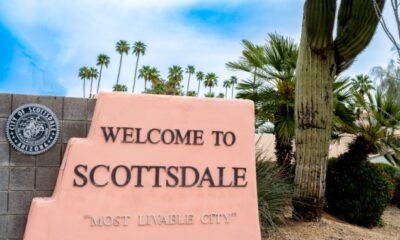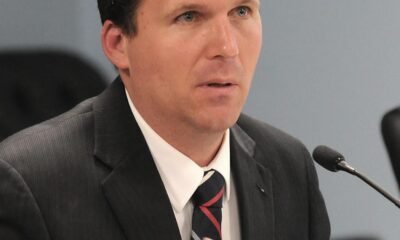Business
Pipeline Giant’s Legal Blitz Against Landowners Faces Setback as Project Stalls

MANSFIELD, S.D. — A recent investigation by Lee Enterprises and The Associated Press sheds light on the ambitious yet contentious efforts of Summit Carbon Solutions to construct a nearly $9 billion carbon pipeline. This project, designed to traverse five Midwest states, has met considerable resistance from South Dakota landowners.
In April 2023, farmer Jared Bossly was unexpectedly served court papers by a sheriff’s deputy at his 2,000-acre property. The legal documents were part of Summit’s strategy to gain access to land through eminent domain, allowing for the acquisition of private property, although Bossly suspected the motivation was not amicable.
He remarked, “I don’t think he was there just to chat.” This incident marks just one of many as Summit initiated 232 lawsuits against landowners, focusing heavily on South Dakota’s farmers in its aggressive pursuit of the pipeline’s construction.
Analysis shows all 156 eminent domain lawsuits filed by Summit occurred in South Dakota alone. In response to mounting public pushback, including protests and political backlash, South Dakota’s legislature enacted a law in early March limiting the use of eminent domain for carbon dioxide pipelines.
Despite Summit’s insistence that it prefers voluntary land agreements, the swift legal actions ignited widespread political and social dissension. Local farmers expressed outrage at encounters with Summit representatives, alleging they were often met with intimidation tactics and inadequate offers for land access. One farmer reported an initial offer of $80,000 for a 36-acre easement that escalated to $350,000 as negotiations faltered.
Beneath the surface of this turmoil is the promise of the pipeline itself. Meant to span 2,500 miles, it would connect to 57 ethanol plants, aiming to distribute captured carbon dioxide for underground storage and thus potentially reduce overall emissions.
Summit employed a proactive outreach strategy, attempting to present its project favorably in agricultural circles where support is typically strong. However, the legal battles and aggressive tactics only fueled animosity among farmers, many of whom felt their property rights were being violated.
As the legal conflicts unfolded, sentiment against Summit grew. Bossly found himself at the forefront of this opposition, turning into a media figure advocating for landowners’ rights. Following an incident where Summit’s surveyors entered his property during his wife’s recovery from surgery, Bossly argued that the company’s tactics sparked a collective resistance among local farmers.
Political implications mirrored the rising backlash, with incumbent lawmakers facing defeats in the past primary elections at the hands of candidates opposing the pipeline.
Farmers rallied with environmentalists, uniting against the pipeline designed to benefit the ethanol industry, usually a Republican stronghold. Attorney Brian Jorde, representing landowners, noted that Summit’s aggressive litigation strategies contributed to their own downfall.
The carbon pipeline project, originally proposed in 2021, is seen as vital for revitalizing economic prospects for ethanol producers, yet the backlash prompted renewed scrutiny of carbon capture methods. While proponents laud the environmental benefits of carbon capture, detractors raise concerns about its effectiveness and the need for continued fossil fuel use.
Braun, another farmer affected by Summit, recounted intimidation during negotiations, alleging threats of legal action from the company. He, alongside numerous other landowners, expressed distrust towards Summit’s practices.
Although some landowners view the pipeline favorably, stating potential economic benefits and respectful dealings, the predominant narrative centers on Summit’s missteps and the community’s united opposition. As the legal landscape evolves, Summit faces continued challenges in securing necessary permits and navigating Governor Kim Reynolds’ administration in Iowa, where support for the pipeline remains mixed.
With the situation still developing in South Dakota, Summit has paused its legal actions but maintains hope for a future resolution. Nonetheless, the atmosphere has shifted, marked by a growing insistence from landowners on the protection of their rights and recognition of their concerns.
This collaborative report emerged from the investigative efforts of Lee Enterprises and The Associated Press, highlighting the intricate interplay between corporate ambitions and local resistance in the quest for sustainable energy solutions.


















